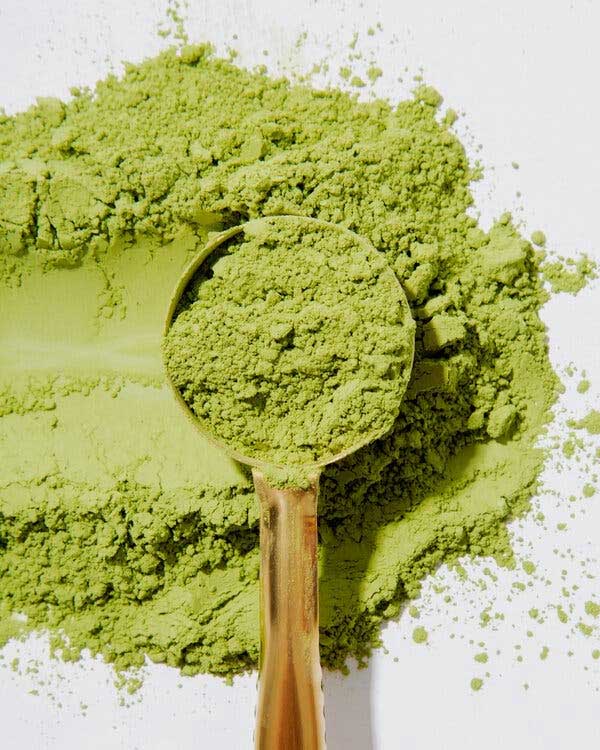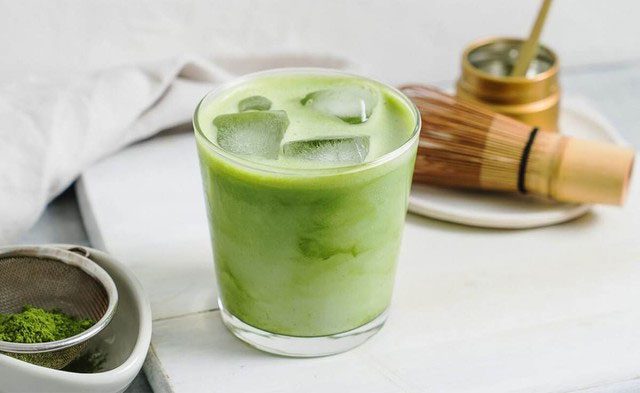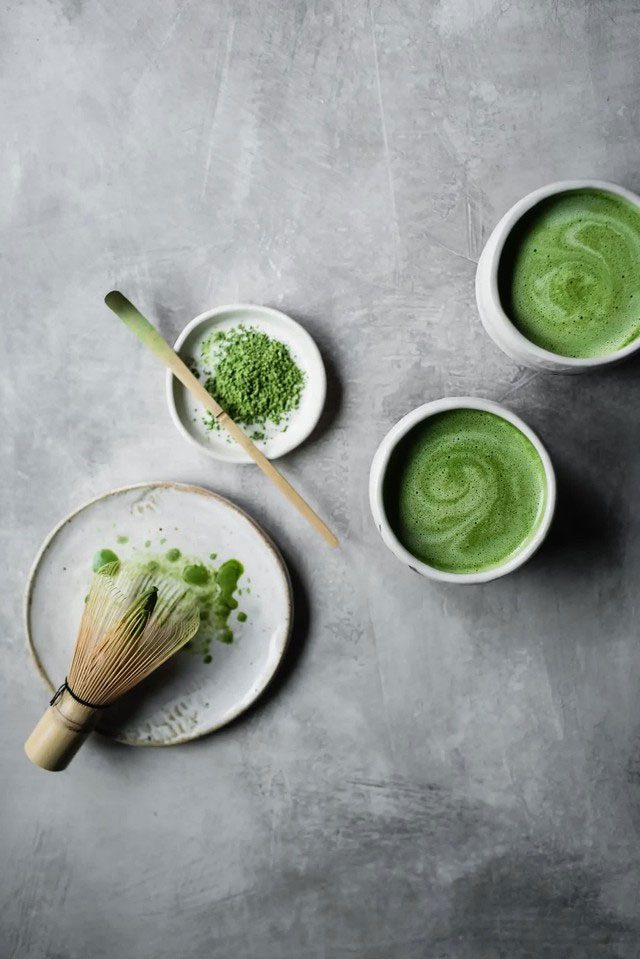This beverage is known to prevent cancer, heart disease, and is beneficial for blood sugar control.
Matcha is a type of tea derived from the Camellia sinensis plant, but it is cultivated differently than regular green tea and contains many unique nutrients. The tea plants are grown entirely in the shade throughout their growth period.
The lack of direct sunlight causes the plants to produce more chlorophyll, increase amino acid content, and achieve a deeper green color. After harvesting, the veins and stems are removed, and the leaves are ground into a fine powder, which is the final product known as matcha powder.

Matcha powder.
Matcha is believed to contain at least three times the amount of EGCG antioxidants compared to common green teas, making it popular in the Japanese diet and increasingly favored globally. When matcha powder is mixed with hot water, it creates a drink that offers numerous health benefits, especially when consumed in the morning due to the following effects:
Increases Focus and Alertness
Matcha contains more caffeine than other teas, only slightly less than pure coffee. On average, a 240ml cup of matcha can contain 70-88 mg of caffeine, while coffee contains 96-140 mg of caffeine.
While coffee provides an immediate boost of alertness, the effects of matcha are more gradual, yet still sufficient to give you energy without causing jitters or an increased heart rate. According to some health experts, matcha may help maintain alertness for a longer duration compared to coffee.
Thanks to caffeine and the compound L-theanine, matcha can also enhance focus, memory, and certain aspects of brain function in older adults, as well as reduce stress.
Cancer Prevention
This beverage contains several compounds associated with cancer prevention, such as high levels of EGCG that inhibit the growth of cancer cells.

EGCG in matcha can reduce oxidative stress and inflammation.
Cardiovascular Benefits
Consuming matcha is associated with a reduced risk of cardiovascular disease, high blood pressure, atherosclerosis, and preventing other complications for individuals with heart conditions. The EGCG in matcha can reduce oxidative stress and inflammation, which are leading causes of heart disease.
Fat Burning and Weight Loss
Matcha is low in calories and may be a suitable beverage in your weight loss regimen. Research indicates that the plant compounds and caffeine in green teas like matcha can accelerate metabolism and increase fat burning rates in individuals with high abdominal fat. This effect can be enhanced when drinking matcha is combined with approximately 30 minutes of daily exercise.
Blood Sugar Control
Matcha inhibits glucose absorption in the intestines, reducing spikes in blood sugar levels after meals. Studies show that green tea, including matcha, improves insulin sensitivity, which is beneficial for blood sugar control, especially after consuming starchy foods. It is important to avoid adding sugar and other sweeteners to this beverage to prevent blood sugar spikes.

EGCG in matcha can help slow the growth of cavity-causing bacteria.
Benefits for Bones and Oral Health
Matcha aids in increasing bone mineral density, promoting strong bones and reducing the risk of fractures due to its high content of plant compounds and abundant antioxidants.
EGCG in matcha can help slow the growth of plaque and cavity-causing bacteria. In a laboratory study, matcha was also found to be more effective than peppermint in reducing bad breath, while also helping to alleviate symptoms of gum disease.
Notes on Consuming Matcha
Nutrition experts recommend that individuals drink matcha in the morning upon waking, before breakfast, and avoid consuming it during meals to reduce the absorption of vitamins from food into the body.
It is advisable not to consume this beverage close to bedtime and not continuously for extended periods; breaks are needed to avoid side effects. You should limit your intake to a maximum of 2 teaspoons – 4g of matcha powder per day, which is equivalent to about 1-2 cups of tea daily.



















































